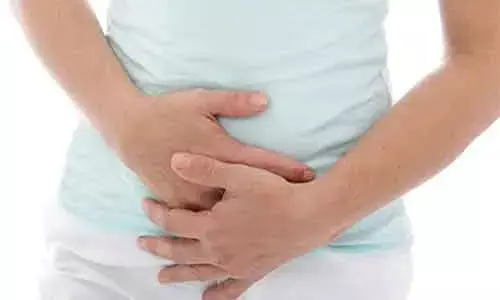- Home
- Medical news & Guidelines
- Anesthesiology
- Cardiology and CTVS
- Critical Care
- Dentistry
- Dermatology
- Diabetes and Endocrinology
- ENT
- Gastroenterology
- Medicine
- Nephrology
- Neurology
- Obstretics-Gynaecology
- Oncology
- Ophthalmology
- Orthopaedics
- Pediatrics-Neonatology
- Psychiatry
- Pulmonology
- Radiology
- Surgery
- Urology
- Laboratory Medicine
- Diet
- Nursing
- Paramedical
- Physiotherapy
- Health news
- Fact Check
- Bone Health Fact Check
- Brain Health Fact Check
- Cancer Related Fact Check
- Child Care Fact Check
- Dental and oral health fact check
- Diabetes and metabolic health fact check
- Diet and Nutrition Fact Check
- Eye and ENT Care Fact Check
- Fitness fact check
- Gut health fact check
- Heart health fact check
- Kidney health fact check
- Medical education fact check
- Men's health fact check
- Respiratory fact check
- Skin and hair care fact check
- Vaccine and Immunization fact check
- Women's health fact check
- AYUSH
- State News
- Andaman and Nicobar Islands
- Andhra Pradesh
- Arunachal Pradesh
- Assam
- Bihar
- Chandigarh
- Chattisgarh
- Dadra and Nagar Haveli
- Daman and Diu
- Delhi
- Goa
- Gujarat
- Haryana
- Himachal Pradesh
- Jammu & Kashmir
- Jharkhand
- Karnataka
- Kerala
- Ladakh
- Lakshadweep
- Madhya Pradesh
- Maharashtra
- Manipur
- Meghalaya
- Mizoram
- Nagaland
- Odisha
- Puducherry
- Punjab
- Rajasthan
- Sikkim
- Tamil Nadu
- Telangana
- Tripura
- Uttar Pradesh
- Uttrakhand
- West Bengal
- Medical Education
- Industry
Rare case in which hiccups were triggered by bladder filling - A report

Dr Chon, Jinmann at Department of Physical Medicine and Rehabilitation, Kyung Hee University College of Medicine, Seoul, Republic of Korea and colleagues hav reported a case of
Hiccups triggered by bladder filling after bilateral pontine hemorrhage.The case has been published in the journal Medicine.
Hiccup is usually a self-limited disorder; hence, many episodes of hiccups may subside spontaneously without any clinical significance. Most hiccups are brief self-limiting episodes of no clinical significance.
The most frequent benign causes are gastric distension , a sudden change in temperature , alcohol consumption, excessive smoking, or psychogenic causes.
Besides these causes brain stem stroke is one of the causes of central hiccups. Certain types of hiccups are caused by diseases that can be fatal. Therefore, it is beneficial for physicians to be familiar with the various cases of unusual hiccups.
The authors describe the case of a 54-year-old patient who had acute bilateral pontine hemorrhage. The patient had intermittent hiccups in the early stages of the stroke onset. The hiccups ceased by the administration of medication or stimulation of the pharyngeal or tracheal wall. Two months after the onset, the Foley catheter was removed to check if the patient could void the bladder voluntarily. Hiccups occurred whenever the bladder was filled with some amount of urine.
When the hiccups occurred, the amount of urine in the bladder was checked using a transabdominal bladder ultrasonography scanner. After clean intermittent catheterization for bladder emptying, the hiccups subsided.
The hiccups occurred 5 or 6 times a day, as often as the bladder was filling. He was unable to void the urine voluntarily for 5 days after the removal of the Foley catheter. Percutaneous suprapubic cystostomy was performed finally to remove the stimulation of bladder filling and the hiccups disappeared.
The case was diagnosed a case of Pontine hemorrhage, neurogenic bladder, and quadriplegia.
Bladder filling is suspected to increase the sympathetic tone and cause a hiccup reflex. Bladder filling could be a factor triggering hiccups in pontine hemorrhage.
During the bladder filling phase, the sympathetic afferent fibers are activated with somatic afferent fibers owing to the mechanical distension of the bladder wall. In this case, we postulated that the hiccups were caused by the irritative sympathetic fibers of the hiccup reflex arc that were full-blown at the end of the filling phase. If the PMC was intact and the bladder emptying phase was initiated, the parasympathetic tone would be activated, and the sympathetic tone would be turned off. As the PMC was injured due to the stroke, the sympathetic tone subsided, and in turn, the hiccups subsided after artificial bladder emptying.
If hiccups in pontine stroke patients are persistent, physicians must check for intra-abdominal stimuli, especially bladder distension.
For further reference log on to:
Dr Kamal Kant Kohli-MBBS, DTCD- a chest specialist with more than 30 years of practice and a flair for writing clinical articles, Dr Kamal Kant Kohli joined Medical Dialogues as a Chief Editor of Medical News. Besides writing articles, as an editor, he proofreads and verifies all the medical content published on Medical Dialogues including those coming from journals, studies,medical conferences,guidelines etc. Email: drkohli@medicaldialogues.in. Contact no. 011-43720751


